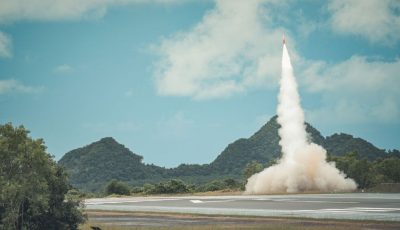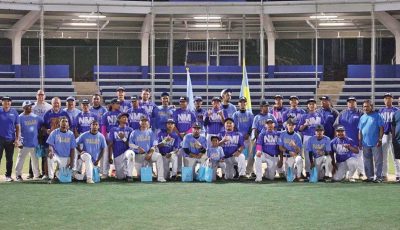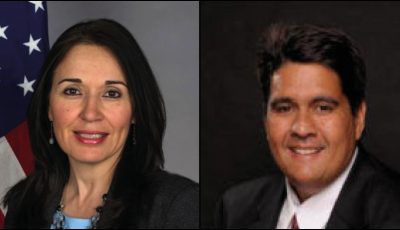Torres admin watching Palau drought closely; willing to assist
The administration of Gov. Ralph DLG Torres is watching Palau’s severe drought closely and is willing to lend a helping hand.
Palau declared a state of emergency last month after the El Nino-induced droughts in the region worsened, Agence France Presse reported this week.
“The administration stands ready to assist the people of Palau in any way it can as they experience worsening drought conditions,” Blanco told Saipan Tribune.
“As you know, Palau is the only sister island that has an honorary consul to the CNMI whom we work closely with,” he added.
At the same time the National Weather Service has signal “very dry” weather in the Mariana Islands and has recommended monitoring water supplies, according to an April 1 report.
The Service said that although trade-wind showers have occurred and rainfall has been near normal since March 1, conditions remain very dry with computer models indicating below normal rainfall over the next few weeks.
The Service said water supplies need to be monitored very closely and water conservation is highly encouraged.
“Drying and yellowing of food crops and vegetation will become much worse and grass fires will increase,” the Service said.
“Water wells on Saipan could see an increase in salinity as the drought progresses,” it adds.
According to the AFP report, Palau officials have warned that drought-stricken Palau could dry up completely this month, and have appealed for urgent aid from Japan and Taiwan, including shipments of water.
The tiny country of about 18,000 people declared a state of emergency last month, the latest Pacific island nation to do so as one of the worst ever El Nino-induced droughts in the region worsens.
“Based on the current water level and usage rates, and assuming conditions persist unabated, a total water outage is likely to occur in the next two to three weeks,” a National Emergency Committee report said.
Access to tap water is already rationed to three hours a day or less in the capital Koror and schools are only open half days because they cannot give students enough to drink.
“Every morning we struggle to shower, clean up, and prepare for the day with the limited amount of water we have,” resident Rolynda Jonathan told AFP.
The Marshall Islands and the Federated States of Micronesia have also declared states of emergency.



























